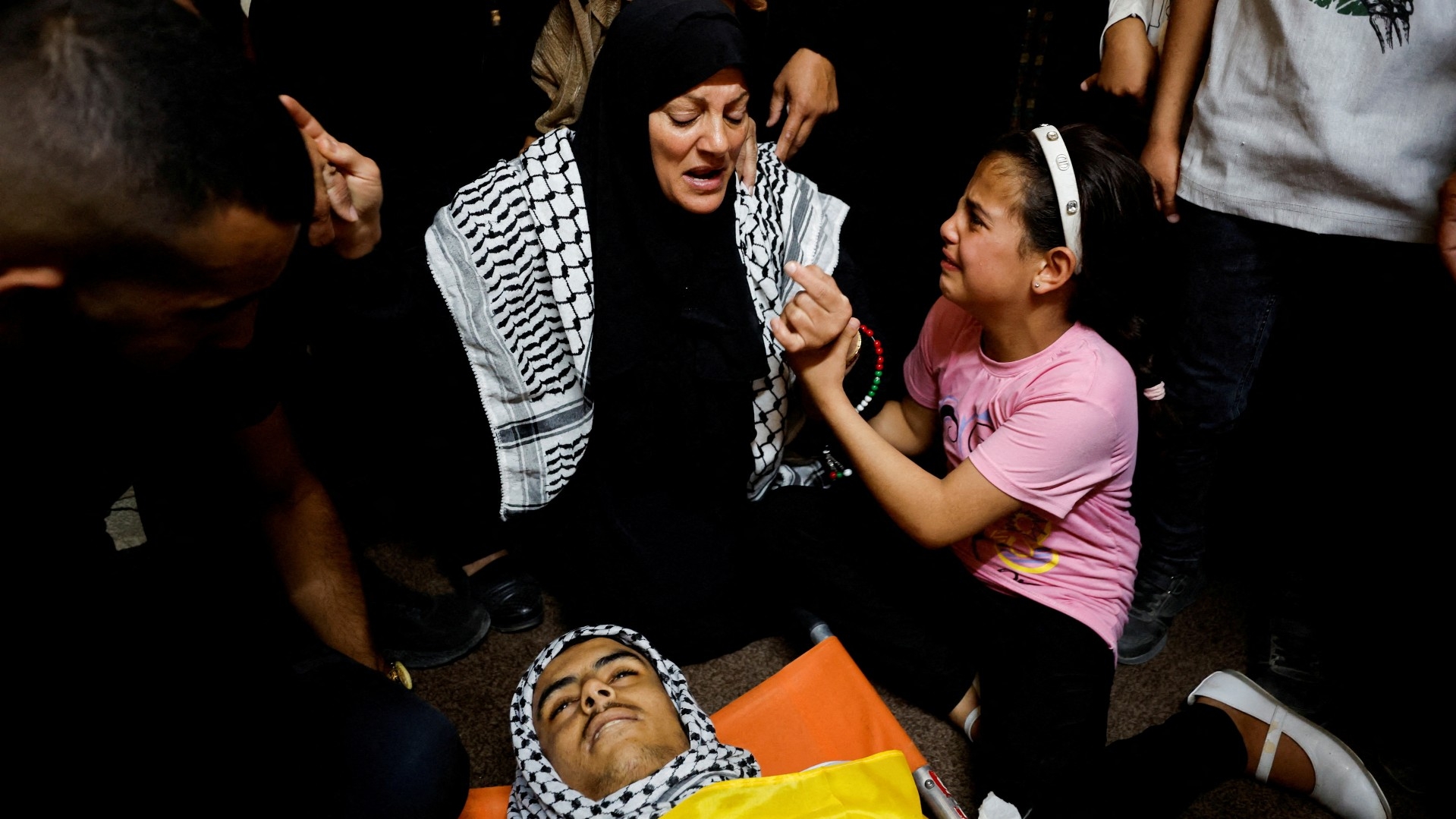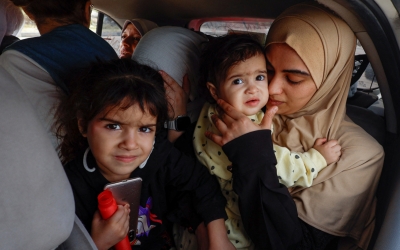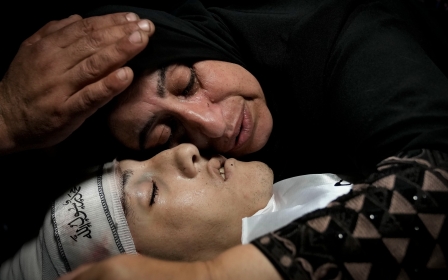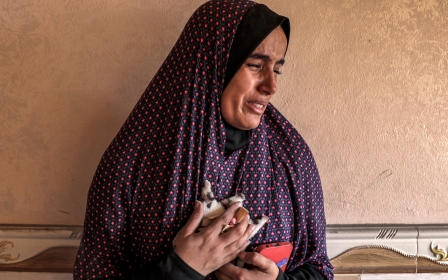Israel-Palestine war: Surge in Israeli arrests and killings of Palestinians in West Bank

Palestinians in the occupied West Bank are denouncing a “frightening” escalation in anti-Palestinian violence and mass detentions in the past two weeks.
Israeli forces have killed dozens and detained at least 870 Palestinian civilians since 7 October, when the armed wing of Hamas carried out a deadly surprise operation in southern Israel.
In the assault, Hamas fired thousands of rockets and sent fighters into Israel by land, air and sea. At least 1,400 Israelis were killed in the incursion, including civilians and combatants, and 199 people taken captive back to Gaza.
Israeli forces have responded by raining down a barrage of air strikes on the Gaza Strip, killing at least 3,785 Palestinians, more than 1,500 of them children.
In the same period, Israeli forces have imposed a strict lockdown across the West Bank, closing cities, placing barriers and cement blocks at the entrances to villages and towns, and shooting at protesters.
New MEE newsletter: Jerusalem Dispatch
Sign up to get the latest insights and analysis on Israel-Palestine, alongside Turkey Unpacked and other MEE newsletters
At least 73 Palestinians, including approximately 20 children, have been killed by Israeli gunfire in the past two weeks, while more than 1,300 have been wounded.
Follow Middle East Eye's live coverage for the latest on the Israel-Palestine war
According to Palestinian medical sources, Israeli forces shooting at young men are aiming at the upper parts of their bodies, such as the head, neck, and chest, while many of the wounds were concentrated on the knee, with the aim of permanent disability. Some of the bullets used are internationally banned explosive bullets.
Meanwhile, the Applied Research Institute, known as Arij, says settler attacks have surged by 40 percent since 7 October.
Families held hostage
Amani al-Sarahna, spokeswoman for the Palestinian Prisoner’s Club Association, told Middle East Eye that the latest detentions are “frightening,” as they are carried out on a daily basis and target dozens of former prisoners, activists, and lawmakers.
Sarahna said that her NGO is trying to record the rapidly increasing number of detainees, but the volume of arrests is rising exponentially and is difficult to document in full.
'My husband had to surrender himself in the Huwwara military camp to protect us from this daily horror'
- Aman Mansour, Nablus resident
“These numbers don’t include workers from the Gaza Strip, of whom Israel said it had arrested thousands since 7 October, nor do they include the number of combatants or citizens from the Strip who were able to enter the settlements surrounding the Gaza Strip on that day,” she added.
However, Sarahna said that what is more concerning is the violence and human rights abuses against detainees and during arrests.
She pointed out that 80 percent of detainees have been subjected to beating and abuse during arrests, and inhumane conditions after detention, including keeping them handcuffed and blindfolded for long periods.
“In every arrest raid at a home, Israeli soldiers deliberately destroy furniture and confiscate some of the contents under the pretext of inspection,” she added.
The NGO also documented incidents of abuse against families of detainees, many of whom are held hostage without regard to their age to pressure other family members to surrender themselves. Most are subjected to torture and humiliating treatment in custody as a form of pressure on wanted persons at large.
“In light of the international condonement of Israeli racist decisions against the Palestinians, it seems that we are going to face larger and more violent arrest campaigns in the coming days,” Sarahneh concluded.
Aman Mansour, 30, told Middle East Eye that the Israeli army stormed her home in the city of Nablus over the course of three days to detain her husband, Amir Shtayyeh, who was released from Israeli prisons only six months ago.
Mansour said that the soldiers, failing to find her husband, “vandalised the contents of the house and turned it upside down” to force him to surrender himself.
“They broke into the house three times, and each time they destroyed everything and terrified my children.
"My husband had to surrender himself in the Huwwara military camp to protect us from this daily horror,” Mansour said.
Middle East Eye delivers independent and unrivalled coverage and analysis of the Middle East, North Africa and beyond. To learn more about republishing this content and the associated fees, please fill out this form. More about MEE can be found here.





